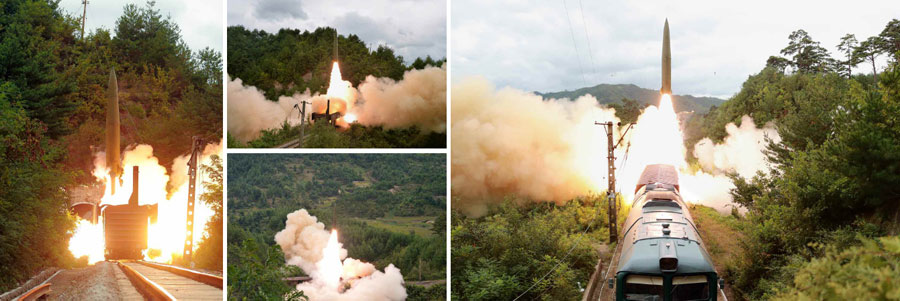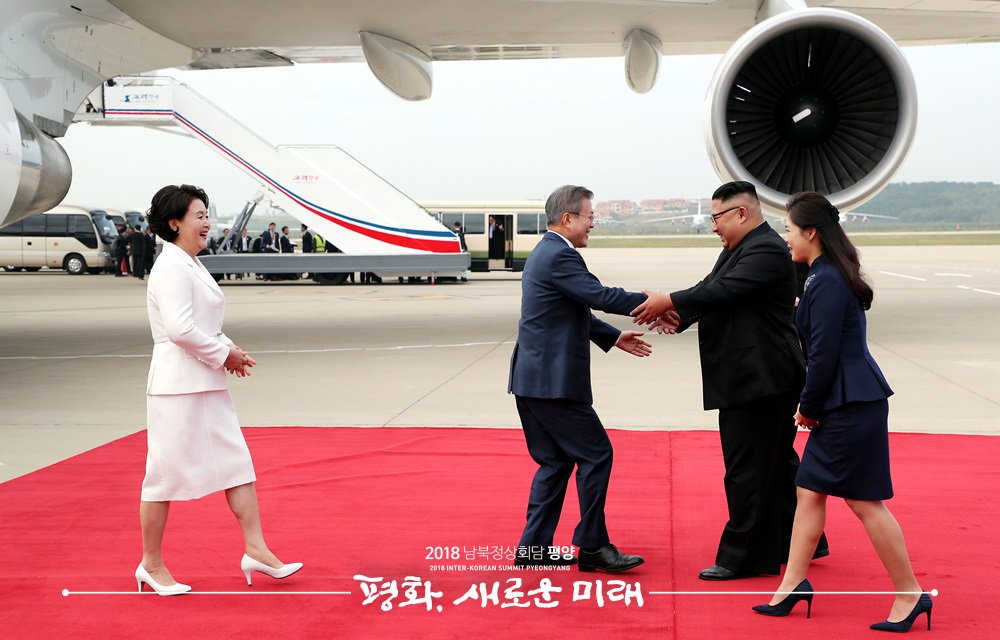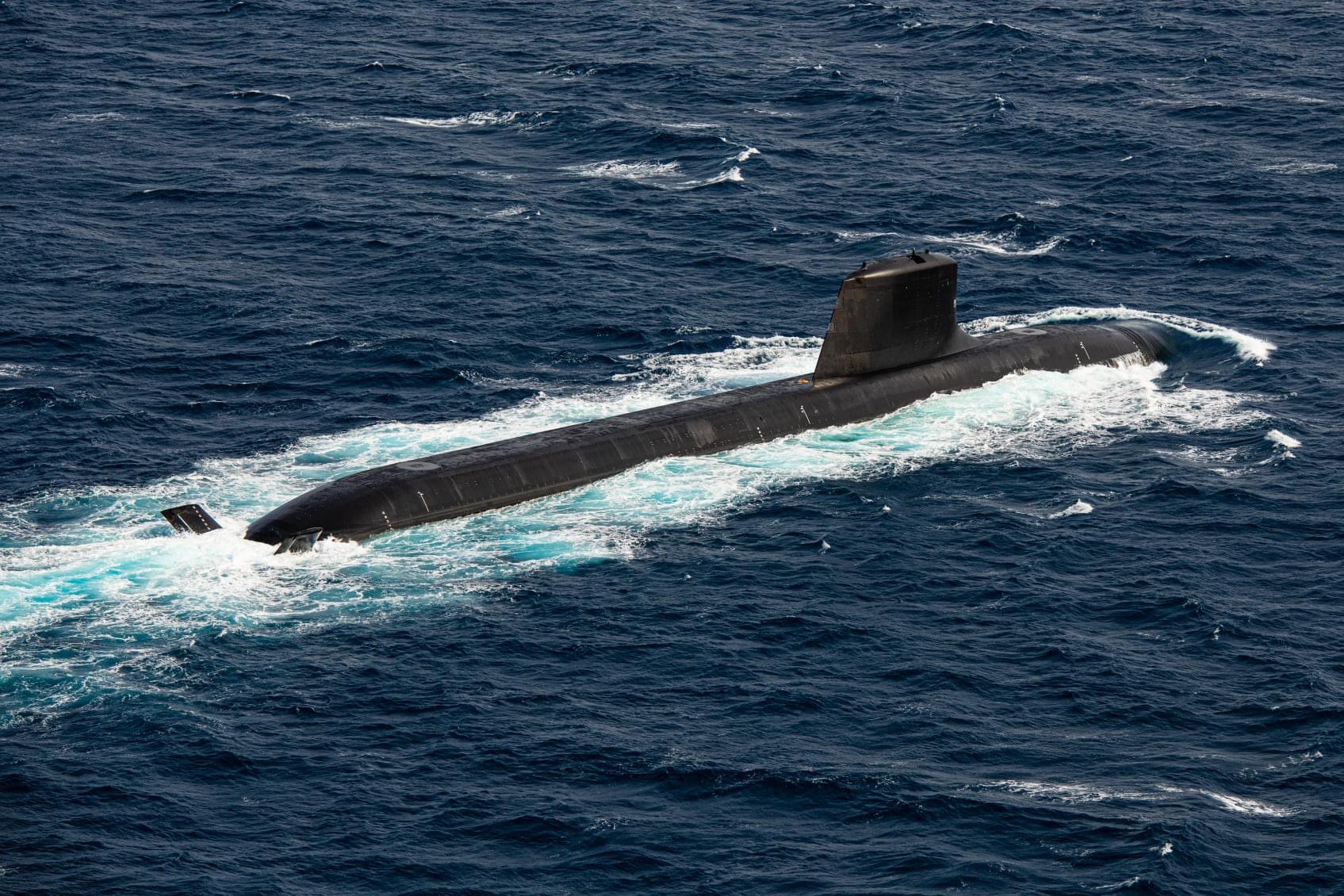Will a speedy conclusion of a deal, under which South Korea purchases nuclear submarines from France, quell the growing sentiments in the former to acquire nuclear weapons and withdraw from the nuclear Non-proliferation Treaty (NPT)?
After US’ Big Breakthrough With Hypersonic Tech, North Korea Stuns The World With Its Own Hypersonic Missile Test
In the wake of the recent announcement of the AUKUS, a wide-ranging defense deal among Australia, the United Kingdom, and the United States, on the one hand, and the rising proliferation of missiles and nuclear weapons by North Korea on the other, more and more South Koreans feel that relying on an unhelpful ally like Washington has made the country’s security vulnerable and its security parameters need a review.
Though South Korean President Moon Jae-in has the image of a pacifist who wants reconciliation with North Korea through negotiations and economic help, his ruling Progressive Party has lost local elections this year and the opposition Conservative candidates are echoing the growing public sentiments for stronger foreign and security policies.
Public Support For Going Nuke
Credible national and international surveys show that South Koreans’ moods are always dependent on North Korea’s behavior. Given North Korea’s regular missile tests and rigidity on nuclear bombs, a recent opinion poll revealed that “nearly 95% of South Koreans believe that North Korea possesses a working nuclear capability and over 93% believes that North Korea will not abandon this capability.”
India Connection: How France-US Spat Over AUKUS Pact Has ‘Direct Links’ With Indian Submarines
As a result, “Nearly 70% of the respondents supported developing indigenous nuclear capability and over 61% supported reintroducing tactical nuclear weapons (of the United States in the country that were withdrawn in 1991) in the country”.

It may be noted that a survey conducted by Gallop in South Korea in 2017 had shown that 60 percent of respondents were in favor of nuclear weapons. Genron NPO, a Japanese opinion survey organization, which conducts opinion polls every year, had found out in 2016 that 59 percent of South Korean respondents supported the independent nuclear armament, but when North Korea undertook its sixth nuclear testing and 15 ballistic missile test launches in 2017, those who favored ‘South Korea going nuclear’ rose to 67.2 percent.
However, when in 2018 the then-US President Donald Trump met the North Korean dictator Kim Jong-un, two Inter-Korean summits were held, and military tension in the peninsula was reduced, those who favored nuclear armament dropped to 43.3 percent. But the next year in 2019, it again went up to 59.6 percent when North Korea reneged its promises. The more or less the same figure (56.5 percent) remained in 2020.
In a recent essay, Professor Chung-in Moon, a former National Security and Foreign Affairs Advisor to President Moon Jae-in, has traced the growing nuclear and missile capabilities of North Korea and how these developments have shaped political and public debates on nuclear weapons in South Korea (and in Japan).

According to him, in South Korea, there are two schools of thought that seek nuclear armaments. One school of thought – “the teleological school” – seeks nuclear armament as a matter of promoting ‘nuclear sovereignty’, based on the logic of ‘nuclear for nuclear.’
China ‘Hits Back’ At US Military; Unleashes Its ‘Wolf Warriors’ To Counter The US In ‘America’s Own Way’
The other school of thought – “instrumentalist”, which has an upper hand – pushes for a conditional, independent nuclear armament based on enhancing the credibility of US’ nuclear-extended deterrence. They favor redeployment of American tactical nuclear weapons or nuclear sharing between South Korea and the United States.
Washington-Seoul Security Ties
It may be noted that the United States and South Korea do have a security alliance under which US troops are present in the country and the latter, like Japan, is under a US nuclear umbrella. In fact, until 1991, American nuclear weapons – 951 tactical nuclear heads, to be precise – were stationed in the peninsula.
The US decision to withdraw nuclear warheads from South Korea was based on the rationale that since North Korea then did not have nuclear weapons and was a party to NPT, it would be unjustifiable for Washington to use tactical nuclear weapons against a non-nuclear country.
But since the situation has drastically changed following North Korea withdrawing from the NPT in 1994 and going nuclear, South Korean conservatives would like the re-transfer of American tactical nuclear weapons, failing which the indigenous nuclear capability must be revived.
FM Chung met with U.S. Secretary of State Antony J. Blinken on Sept. 22 (New York time), on the occasion of the UNGA and exchanged views on issues of mutual interest, including bilateral relations, Korean Peninsula issues, and regional and global affairs.https://t.co/wVXnEpzB7Y pic.twitter.com/oELy9UjqfQ
— MOFA (@MOFAkr_eng) September 29, 2021
The point of this school is that as without nuclear weapons, South Korea will become a slave of a nuclear North Korea, the former should have its own nuclear weapons to create a balance of power on the Korean peninsula and in the region. By so doing, South Korea will also become a credible middle power with nuclear weapons that can prevent the outbreak of war.
‘Deal Of The Century’: Why Tata-Airbus Joint Venture Could Pave Way For India To Become A Global Aerospace Hub
South Korea’s nuclear capability was never in question since the days of late President Park Chung-hee, when the then Nixon Administration was thinking of reducing the US presence from the peninsula as per its Guam doctrine (1969) that said that henceforward, the US would like to provide more economic and security assistance to the allies than keeping American troops in them.
South Korea’s Plutonium Stockpile
In fact, in 2004, Seoul revealed to the International Atomic Energy Agency that it had attempted to enrich uranium as late as 2000. It had conducted chemical uranium enrichment from 1979 to 1981, separated small quantities of plutonium in 1982, experimented with uranium enrichment in 2000, and manufactured depleted uranium munitions from 1983 to 1987.
In his essay, Professor Moon has pointed out how in 2016, Charles Ferguson, then president of the Federation of American Scientists, estimated that South Korea had up to 4330 bombs’ worth of plutonium at the Wolsong site, assuming a conservative estimate of about 6 kg plutonium for a first-generation fission device.
China ‘Hits Back’ At US Military; Unleashes Its ‘Wolf Warriors’ To Counter The US In ‘America’s Own Way’
He had also mentioned how Suh Kune-yul, a Professor of nuclear engineering at Seoul National University asserted that that “South Korea has plutonium enough to produce 5,000 nuclear warheads of 100 kilotons. If we (South Korea) decide to stand on our own feet and put our resources together, we can build nuclear weapons in six months with the investment of one billion dollars.”

Despite all this, Prof Moon, however, is not sanguine that South Korea will go nuclear in near future because of “fear of international sanctions and negative impacts on their economy and the civilian atomic industry, a potential rupture in their alliance relationship with the United State”.
On the other hand, analysts like Joel Petersson Ivre argue that South Korea will be the next marine power to purchase or develop nuclear submarines. And in this, France, humiliated by the AUKUS, will come to South Korea’s help.
There were reports in 2018 that South Korea’s Navy was reviewing a plan to build a 5,000-ton nuclear-powered submarine in an effort to boost its deterrence against North Korea’s sub-based nuclear attack capability. This submarine was to be modeled after the French 5,300-ton Barracuda-class sub.

Since nuclear-powered submarines are not covered by the NPT to which South Korea is a party, France could always help it. In fact, the French Ambassador in Seoul, told the press the other day that France could not only help South Korea on nuclear waste reprocessing technologies but also in other areas as “France is a country that has all the technology, from military technology to nuclear submarines and aircraft carrier building. France and the United States are the only countries that have all the technology related to nuclear submarines.”
DECODED: How The US Itself ‘Punctured’ Afghan Military Capabilities To Hand Easy Victory To The Taliban
Of course, South Korea does have an agreement with the United States since 2015 that regulates nuclear cooperation between the two countries. But that agreement does not cover nuclear propulsion in a submarine.
“In light of the AUKUS deal, it is likely that South Korean policymakers will press for such an agreement. ‘If Australia can have nuclear subs, why can’t we?’ South Korea maybe even interested in combining nuclear propulsion with its recently demonstrated submarine-launched missile (SLBM) capacity”, argues Ivre.
China ‘Decodes’ F-22, F-35 Puzzle; Flaunts ‘World’s First Anti-Stealth Radar’ That Can Detect Stealthiest Of Aircraft
He then goes further to say, “if South Korea was to acquire nuclear submarines from France, their reactors would likely run on Low-Enriched Uranium (LEU). While LEU poses a larger risk for diversion, as reactors built to run on LEU need to be refueled more often, this material is not immediately useable for weapons production, and South Korea already possesses large quantities of it through its civilian nuclear program.
Still, South Korea’s poor past record on non-proliferation shows that the risk remains that nuclear material which is not subject to IAEA’s monitoring measures (safeguards) might be diverted to proscribed uses.”
Therefore, many may agree with Ivre’s conclusion that South Korea may not go immediately for nuclear weapons, but its acquiring nuclear submarines from France could undermine “a non-proliferation norm in a country where it is already weakened, and in a region which is undergoing a significant arms race.”
- Author and veteran journalist Prakash Nanda has been commenting on politics, foreign policy on strategic affairs for nearly three decades. A former National Fellow of the Indian Council for Historical Research and recipient of the Seoul Peace Prize Scholarship, he is also a Distinguished Fellow at the Institute of Peace and Conflict Studies. CONTACT: prakash.nanda@hotmail.com
- Follow EurAsian Times on Google News




